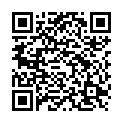|
|
|
| Module code: BIBW-371 |
|
|
2V (2 hours per week) |
|
2,5 |
| Semester: 3 |
| Mandatory course: no |
Language of instruction:
French |
Assessment:
Written exam and composition with presentation (90 minutes / weighting 1:1 / can be repeated semesterly)
[updated 14.03.2018]
|
BIBW-371 (P420-0187, P420-0188) International Business, Bachelor, ASPO 01.10.2013
, semester 3, optional course
BIBW-371 (P420-0187, P420-0188) International Business, Bachelor, ASPO 01.10.2017
, semester 3, optional course
|
30 class hours (= 22.5 clock hours) over a 15-week period.
The total student study time is 75 hours (equivalent to 2.5 ECTS credits).
There are therefore 52.5 hours available for class preparation and follow-up work and exam preparation.
|
Recommended prerequisites (modules):
BIBW-271 French 2
[updated 30.07.2015]
|
Recommended as prerequisite for:
BIBW-451 French 4
[updated 04.02.2020]
|
Module coordinator:
Prof. Dr. Thomas Tinnefeld |
Lecturer:
Dozierende des Studiengangs
[updated 30.07.2015]
|
Learning outcomes:
After successfully completing this module, students will: have strengthened and developed the four essential language skills at the B1.2 level of the Common European Framework of Reference for Languages (CEFR)
- have advanced and further developed their communicative language competence
- have further advanced their communicative skills relevant for text reception, text production, interaction and linguistic mediation
- have advanced their subject-related knowledge of technical business administration terms/language
- have further improved their ability to compose texts on technical topics using various sources
- have acquired more advanced knowledge about the target language countries
- have further increased their awareness with regard to intercultural content and experiences
[updated 14.03.2018]
|
Module content:
- Exercises for listening and reading comprehension using predominantly subject-related texts; comprehension of detailed statements in moderately difficult texts in standard language; reception of moderately difficult expert discussions and subject-related communication situations
- Writing and speaking exercises; dialogic/monologic speech; job-related role-playing and simulations; presentation with subsequent discussion
- Continued expansion of a general and subject-oriented vocabulary and advanced skills for its use
- Continued acquisition of strategies to improve and guarantee comprehension (learning aids such as dictionaries, grammars and the Internet)
[updated 14.03.2018]
|
Teaching methods/Media:
Use of a multimedia computer language laboratory
Use of print, audio and video media
Partner work, group work and role playing
Presentations by the lecturer and the participants
Internet research
The goal is to enable authentic foreign language communication within the teaching environment.
[updated 14.03.2018]
|
Recommended or required reading:
Teaching materials:
Authentic print media
Texts for listening comprehension (audio/video)
Individualized and target group-oriented exercise materials for vocabulary and grammar
Internet resources
[updated 14.03.2018]
|


